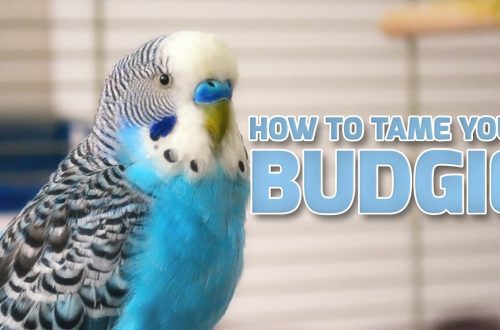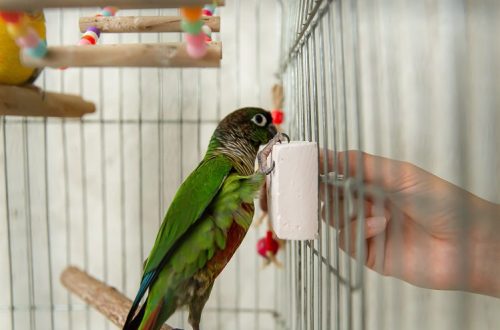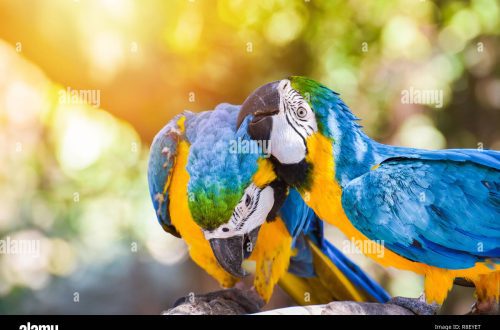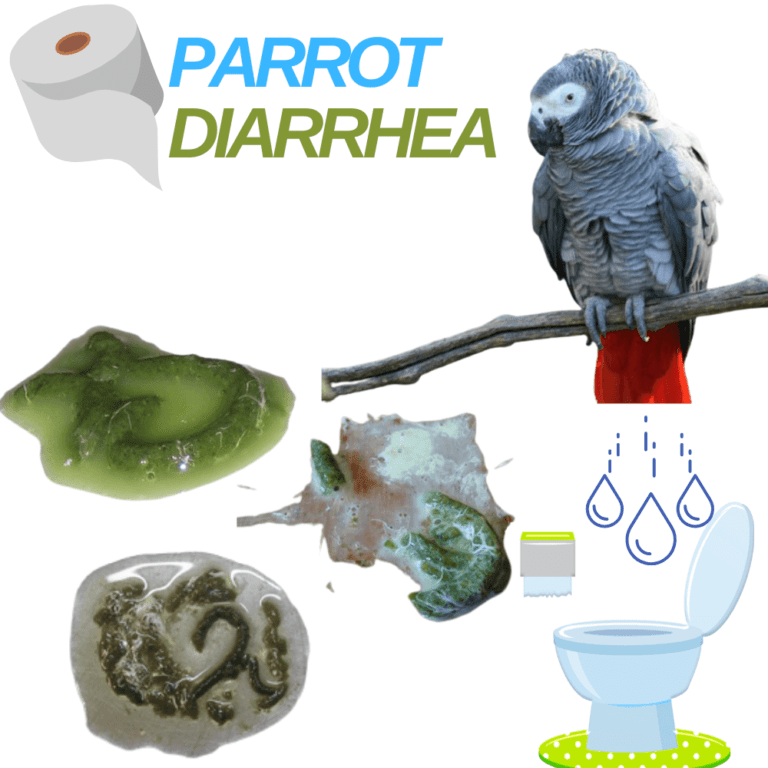
Diarrhea in a parrot – what to do?
Diarrhea in a parrot is a disease that is very easy to notice and, if you start treatment on time, you can save your pet. Underestimate your bird’s upset stomach, as there can be many causes, both minor and severe.
Non-serious reasons – this is when you noticed a lot of water in the parrot’s droppings, and before that the bird ate juicy food and later on, the droppings became normal again and does not arouse suspicion. Also, if you give the parrot boiled water to drink, the bird can absorb it in much larger quantities than purified or bottled water.
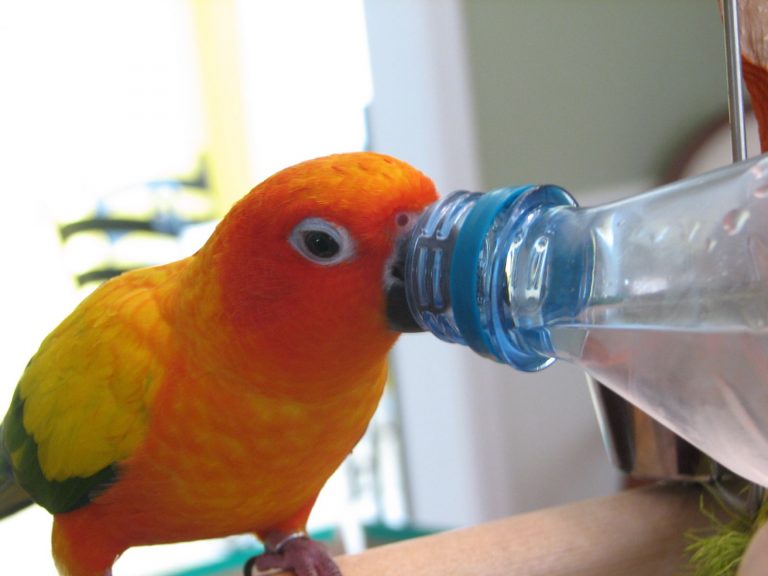
The presence of excess water in the stool is not diarrhea if what should be a thick part remains tightly formed.
There are two types of diarrhea in parrots: polyuria and diarrhea. Polyuria is an increase in the amount of urine in the litter. Diarrhea is an increase in fluid in the stool itself.
Polyuria is a temporary phenomenon that can be caused by a change in environment – stress, a change in nutrition (an excess of some component), diet, egg laying, etc.
With diarrhea, the abdomen and the area around the cloaca becomes contaminated with droppings, which stick and dry both to the feathers and to the skin. The litter itself exudes an unpleasant odor, may contain blood, mucus and blisters.
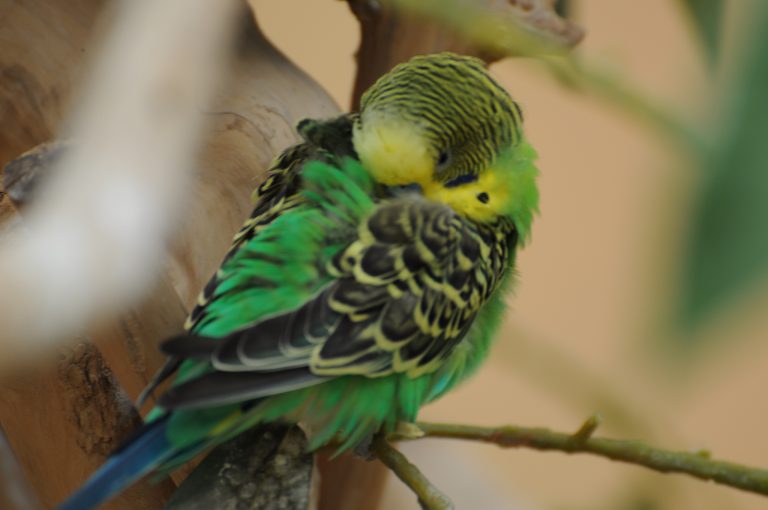
If your budgerigar has loose stools and droppings:
- yellow, bright green (liver disease due to parasites or poisoning);
- you see particles of undigested grains (inflammation of the goiter, lack of trace elements, dysbacteriosis, fungus, infection);
- white litter, with a grayish tinge (pancreatic disease due to the presence of fatty foods in the bird’s diet);
- black litter and a large amount of liquid (possibly a disease of the nervous system, problems with the gastrointestinal tract);
- only a greenish liquid (urgently see a doctor! Give soft food from a syringe);
- the presence of a large amount of white in the litter (arthritis, kidney failure);
- red droppings (if a hiss occurs after a drop of hydrogen peroxide, there is blood in the droppings. Urgently see a doctor! 1 drop of Dicinon in the beak).
Contents
Symptoms of the effects of prolonged diarrhea in a parrot
The bird sits on the perch, but more and more often sinks to the bottom of the cage, the body position is tense, bent, ruffled, the bird closes its eyes, the state is similar to sleepy, does not respond to external stimuli, apathetic and lethargic, vomiting appears, refuses to eat, feathers in liquid droppings and dirty.
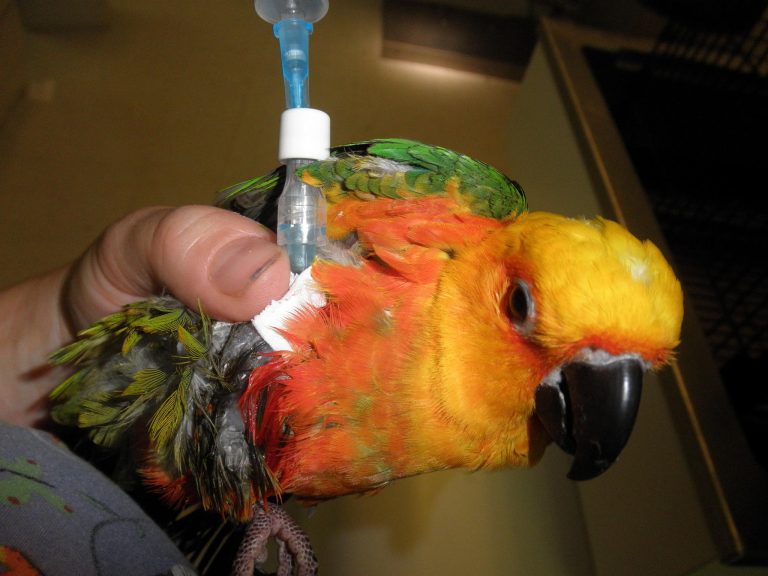
Any atypical behavior of your parrot should alert you, do not delay treatment, the fact that you provide first aid to the bird and support it with vitamin preparations can give you more time to find a specialist and get the necessary tests.
Possible causes of diarrhea
In order to know how to act correctly in your situation, you should find out the cause of loose stools in a parrot.
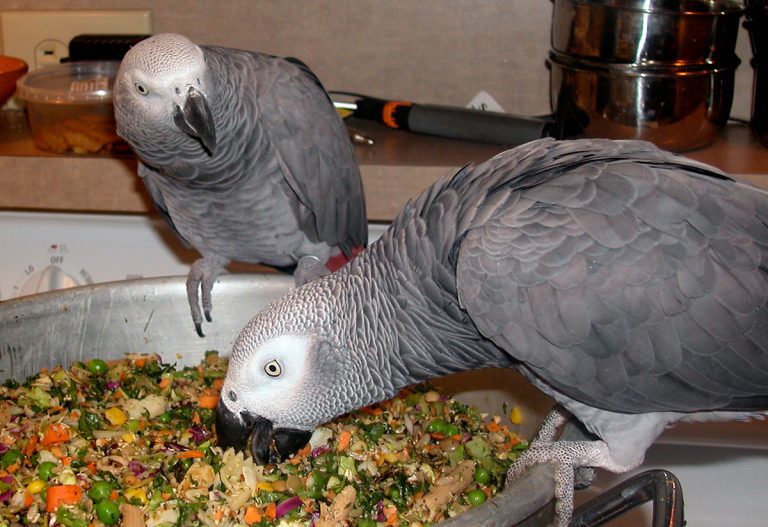
Most often it is:
- an abrupt change in feed or a batch of grain mixture was found to be of poor quality. Action: carefully inspect the feeder and grain packaging, buy a proven and high-quality food without additives. Millet must be present in the feed;
- violation of cell hygiene. Actions: carry out a complete disinfection of all cages, equipment and accessories with which the parrot has come into contact;
- stale, poor quality water. Replace water with baby bottled water. Also, if you give high-quality water, and the bird drinks it moderately, and there is always a lot of water in the stool, this may be one of the signs of kidney failure.
When a parrot has abnormal thirst, this may be a sign of a lack of vitamin A;
- greens, fruits and vegetables. Perhaps the bird ate the sour fruit. Until the parrot recovers, exclude greens and juice-containing foods from the diet;
- houseplants. Examine your plants for traces of parrot tricks and whether they are poisonous to birds;
- location of the cage: is there a draft, how noisy is the room, where and with whom does the bird live? Eliminate any stressful sounds for the parrot and make sure that the bird is in a calm and safe environment;
- Do parrots get “sunbaths”? How often is the bird in the sun? The lack of vitamin D in the body of a parrot reduces the immunity of the bird;
- infection;
- diseases of internal organs (intestines, kidneys, liver);
- goiter inflammation;
- antibiotic treatment (violation of the intestinal microflora);
- parasites.
What to do: in addition to urgent disinfection of the cage and its contents, put the bird in order: rinse the area around the cloaca with a warm solution of chamomile, clean the feathers from adhering dirt. If the parrot is eating, sprinkle the food with carsil (after rubbing the floor of the tablet), boil the rice in water.
The solution of chamomile in the drinker should be changed to fresh every 2 hours!
If the bird is fluffed up, install an infrared lamp over the cage, after creating a secluded corner with a cape where the parrot could move.
Warming up is possible only if there is no blood in the feces!
Contact an ornithologist to determine the diagnosis and take tests, take a picture of the conditions in which the bird lives and what its droppings look like.
If you do not have the opportunity to contact a specialist, write to the forums, describing in detail the bird’s lifestyle, indicating its age and nature of nutrition. Attach photos of the pet, cage, litter.
A list of ornithologists and laboratories where you can get tested can be found here.
Treatment
In order to start a full-fledged treatment of diarrhea in a parrot, first of all, you should be tested for parasites and bacteria.
Buy vitamins, probiotics to restore intestinal microflora and an adsorbent.
Grind 0,5 tablets of activated charcoal and add to boiled rice.
For drinking: brew a solution of chamomile according to the instructions, then dilute in an equal amount with water.
With diarrhea in a budgerigar, the Gamavit immunomodulator will not be superfluous, dosage: 0,5 ml per 50 ml of water. The course of treatment is 7 days.
You can try Vetom 1.1 – twice a day at the tip of a knife in water, you can also combine these dry bacteria with Linex (pour 1 capsule of the drug onto pre-moistened food).
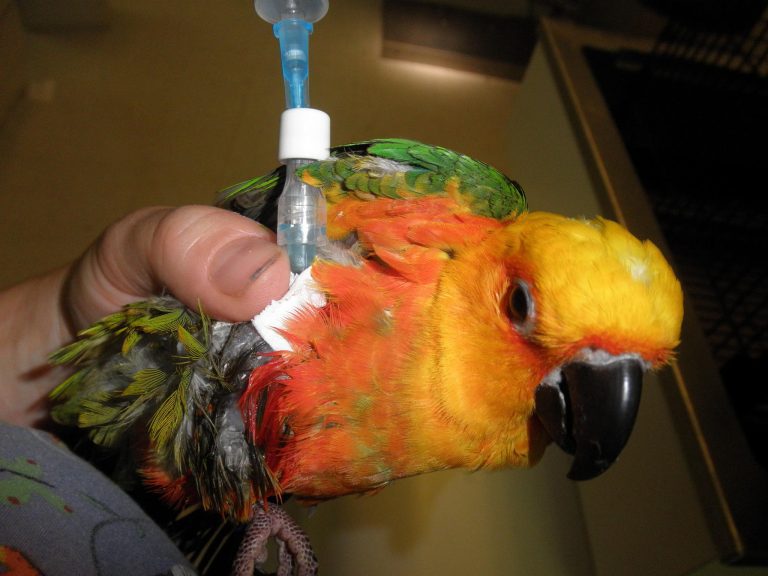
If, after the measures taken, there is no improvement in the health of your parrot, contact a specialist immediately. The lack of results after providing first aid to a parrot may indicate a very serious disease of the bird.



